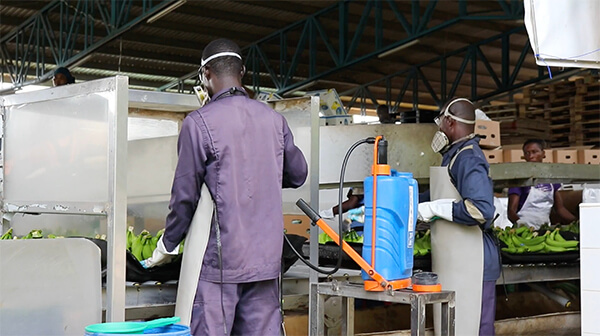French Supreme Court Attorney Francois-Henri Briard and internationally-known environmental lawyer Stuart H. Smith head up the plaintiffs’ legal team seeking to finally provide damages to the workers of three companies which employed banana workers in Nicaragua and other areas around Central America after alleged exposure to the chemical pesticide Nemagon, proven to cause sterility in men, had been banned in the U.S. in the late 1970s
With a favorable French court ruling under their belts, a multi-national legal team moved today to seize more than $110 million in assets owned by legal entities of the Dow group in France in order to compensate more than 1200 former Central American plantation workers and their families for alleged damages caused by knowing corporate use of a ‘sperm killer’ pesticide at its fruit plantations.
French Supreme Court Attorney Francois-Henri Briard and internationally-known environmental lawyer Stuart H. Smith head up the plaintiffs’ legal team seeking to finally provide damages to the workers of three companies which employed banana workers in Nicaragua and other areas around Central America after alleged exposure to the chemical pesticide Nemagon, proven to cause sterility in men, had been banned in the U.S. in the late 1970s. The companies are Dow, Occidental and Shell.
The French courts agreed to hear cases of previously uncompensated workers in a Paris trial (Herrera Rios et autres c/ Dow Chemical Company et autres, N° RG 19/04112. Paris Trial Court) early next January, 2020 about the corporate giants’ alleged use of the banned pesticide in Central America well into the 1980s.
Mr. Briard said there are serious chances that French Courts will soon grant exequatur—or enforcement of a foreign Court order in France—because the legal reasoning of Nicaraguan judges is inspired from French legal culture.
Also Mr. Briard emphasized the fact that these U.S. companies had a fair trial in Nicaragua which makes these foreign opinions very compatible with French legal order.
Because current European Union rules allow Court orders to be upheld within its 28-nation trading bloc, workers will then be able to enforce exequatur and if necessary seize the three U.S. companies assets in Europe.
“Finally, these plantation workers will collect alleged damages from Dow and its subsidiaries,” said Mr. Smith. “We believe these companies knowingly poisoned people and then left without any penalty, knowing these workers would be denied a normal family life.”
Source: PR Web
